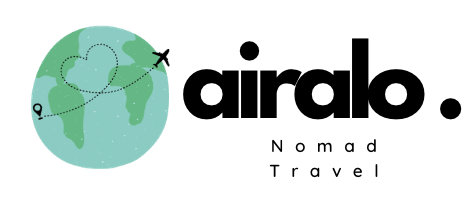Are you a digital nomad considering South Korea as your next destination? Finding the right visa type is essential for your stay. Yet, in the face of numerous options, it can be quite overwhelming to pinpoint the most suitable choice. Don’t worry. We’re here to help! In this article, we will guide you through the best visa types for digital nomads in South Korea. Whether you’re staying for a short period or planning to make it your long-term base, we’ll provide you with all the relevant information you need to make an informed decision.
You’ll discover the pros and cons of each visa type, the eligibility requirements, and the application process. We’ll also highlight any restrictions or limitations that might affect your stay as a digital nomad. From the E-7 visa to the H-1 visa, we’ll discuss the options available to freelancers, entrepreneurs, and remote workers. By the end of this article, you’ll have a clear understanding of the best visa type for your digital nomad lifestyle in South Korea. Get ready to embark on your Korean adventure with the right visa in hand!
Benefits of being a digital nomad in South Korea
Before delving into the specific visa types, let’s first explore the advantages of being a digital nomad in South Korea. One of the major benefits is the country’s excellent internet infrastructure. South Korea boasts one of the fastest and most reliable internet connections in the world, making it an ideal location for remote work. Additionally, South Korea offers a high standard of living, with modern amenities, efficient public transportation, and a strong healthcare system. The country is also known for its safety, cleanliness, and welcoming attitude towards foreigners.
Another advantage of being a digital nomad in South Korea is the opportunity to immerse yourself in a unique and fascinating culture. From ancient palaces to bustling markets, South Korea offers a plethora of cultural experiences. The country’s rich culinary scene, vibrant nightlife, and vibrant arts and entertainment industry ensure that there is never a dull moment. Moreover, South Korea’s strategic location in East Asia makes it an excellent base for exploring other regional countries.
Overview of visa types for digital nomads in South Korea
Now that we have established the benefits of being a digital nomad in South Korea let’s delve into the available visa types. Each visa type has its own requirements and restrictions, making it imperative to select the one that aligns most closely with your individual needs and objectives.
E-7 visa for freelance professionals
The E-7 visa is specifically designed for freelance professionals and is an excellent option for digital nomads in South Korea. To be eligible for this visa, you must demonstrate your expertise in a particular field, such as IT, engineering, or design. One of the significant advantages of the E-7 visa is that it allows you to work for multiple clients or projects, providing the flexibility that digital nomads require. Additionally, this visa enables you to stay in South Korea for up to two years, with the possibility of an extension.
To obtain an E-7 visa, you need to submit many documents, including a valid passport, proof of professional experience, and a detailed project plan. It is also necessary to provide evidence of financial stability to support yourself during your stay in South Korea. Upon approval, you gain access to the advantages of this visa, granting you the freedom to work independently and the chance to fully engage in South Korea’s dynamic work culture.
D-10 visa for job seekers
The D-10 visa is an ideal option for digital nomads who are actively seeking employment opportunities in South Korea. This visa allows you to stay in the country for up to six months, during which you can explore job prospects and attend interviews. The D-10 visa provides digital nomads with a valuable opportunity to network and establish connections within the local job market.
To qualify for the D-10 visa, you need to provide proof of your intention to find employment in South Korea, such as job application records or interview schedules. It is also necessary to demonstrate your financial ability to support yourself during your job search. Once you secure employment, you can easily transition to the appropriate work visa, ensuring a seamless transition from being a digital nomad to a resident worker in South Korea.
H-1 visa for highly skilled professionals
For digital nomads with exceptional skills and expertise in their respective fields, the H-1 visa is an attractive option. This visa is designed for highly skilled professionals and offers numerous benefits. The H-1 visa allows you to work in South Korea for up to five years, with the possibility of an extension. This extended duration provides digital nomads with the stability and security necessary to establish themselves in the country.
To be eligible for the H-1 visa, you must meet certain criteria, including demonstrating expertise in a specific field and securing a job offer from a South Korean employer. Additionally, you need to provide proof of your qualifications and educational background. Once approved, you can enjoy the advantages of the H-1 visa, including competitive salaries, access to social security benefits, and opportunities for professional growth and development.
F-2 visa for foreign spouses
For digital nomads who are married to South Korean foreigners residing or citizens in South Korea, the F-2 visa is a viable option. This visa allows you to stay in South Korea for an extended period and engage in various activities, including work. The F-2 visa provides digital nomads with the opportunity to explore career prospects while enjoying the benefits of a stable family life.
To obtain an F-2 visa, you need to provide proof of your marriage or relationship with a South Korean citizen or foreign resident. Additionally, you must demonstrate your financial stability and ability to support yourself and your family during your stay in South Korea. The F-2 visa offers digital nomads the flexibility to pursue their careers while maintaining strong personal connections and enjoying the vibrant culture of South Korea.
Comparison of visa types for digital nomads in South Korea
Now that we have explored the different visa types available, let’s compare them to help you determine the best visa type for your digital nomad lifestyle in South Korea.
| Visa Type | Eligibility | Duration | Work Restrictions |
| E-7 | Freelancers | Varies | None |
| D-10 | Job seekers | 6 months | No long-term work |
| H-1 | Professionals | 3 years | Highly skilled industries |
| F-2 | Foreign spouses | Varies | None |
Consider your specific circumstances and long-term goals when choosing a visa type. If you prefer the flexibility of freelancing, the E-7 visa may be the best fit. Conversely, if you wish to secure long-term employment in South Korea, the D-10 or H-1 visa could be more suitable. If you are married to a South Korean citizen, the F-2 visa offers the most freedom and flexibility.
How to apply for a digital nomad visa in South Korea
Now that you have determined the best visa type for your digital nomad lifestyle in South Korea let’s explore the application process. The specific prerequisites and procedures may differ based on the visa category, yet here are some general steps to provide you with guidance:
- Gather the necessary documents: This may include proof of your professional qualifications, financial statements, and a valid passport.
- Research the visa application process: Visit the official website of the South Korean embassy or consulate in your home country to familiarize yourself with the specific requirements and procedures for your chosen visa type.
- Complete the application form: Fill out the application form accurately and ensure that all the required information is provided.
- Submit application: Send your application, along with the required supporting documents, to the designated embassy or consulate.
- Attend an interview (if required): Some visa types may require an interview as part of the application process. Be ready to respond to inquiries about your qualifications, intentions, and financial stability.
- Await the visa decision: The processing time for visa applications can vary, so be patient while waiting for the decision. Once approved, you will get your visa and can begin planning your digital nomad adventure in South Korea.
Tips for living and working as a digital nomad in South Korea
Living and working as a digital nomad in South Korea can be an enriching experience. To make the most of your time in this vibrant country, consider the following tips:
- Learn the language: While many South Koreans speak English, learning the local language, Korean, will enhance your experience and allow you to connect with the locals on a deeper level.
- Embrace the culture: Immerse yourself in the rich culture and traditions of South Korea. Attend festivals, visit historical sites, and try local cuisine to truly appreciate the country’s heritage.
- Network with fellow digital nomads: Participate in online communities and engage in networking events to establish connections with fellow digital nomads in South Korea. Building a support system can provide valuable insights and opportunities for collaboration.
- Explore the country: South Korea offers a diverse landscape, from stunning coastal areas to picturesque mountains. Take advantage of your flexible schedule as a digital nomad to explore different regions of the country.
- Stay compliant with visa regulations: Ensure that you adhere to the visa regulations and renew your visa as required. Familiarize yourself with the local laws and regulations to avoid any complications during your stay.
Conclusion
In conclusion, South Korea provides a range of visa options for digital nomads, each catering to specific needs and goals. Whether you prefer freelancing, job seeking, or pursuing a long-term career, there is a visa type that suits your situation. By carefully considering your circumstances and long-term goals, you can choose the best visa type for your digital nomad lifestyle in South Korea. Embrace the unique opportunities and experiences that South Korea has to offer as you embark on your digital nomad journey.





